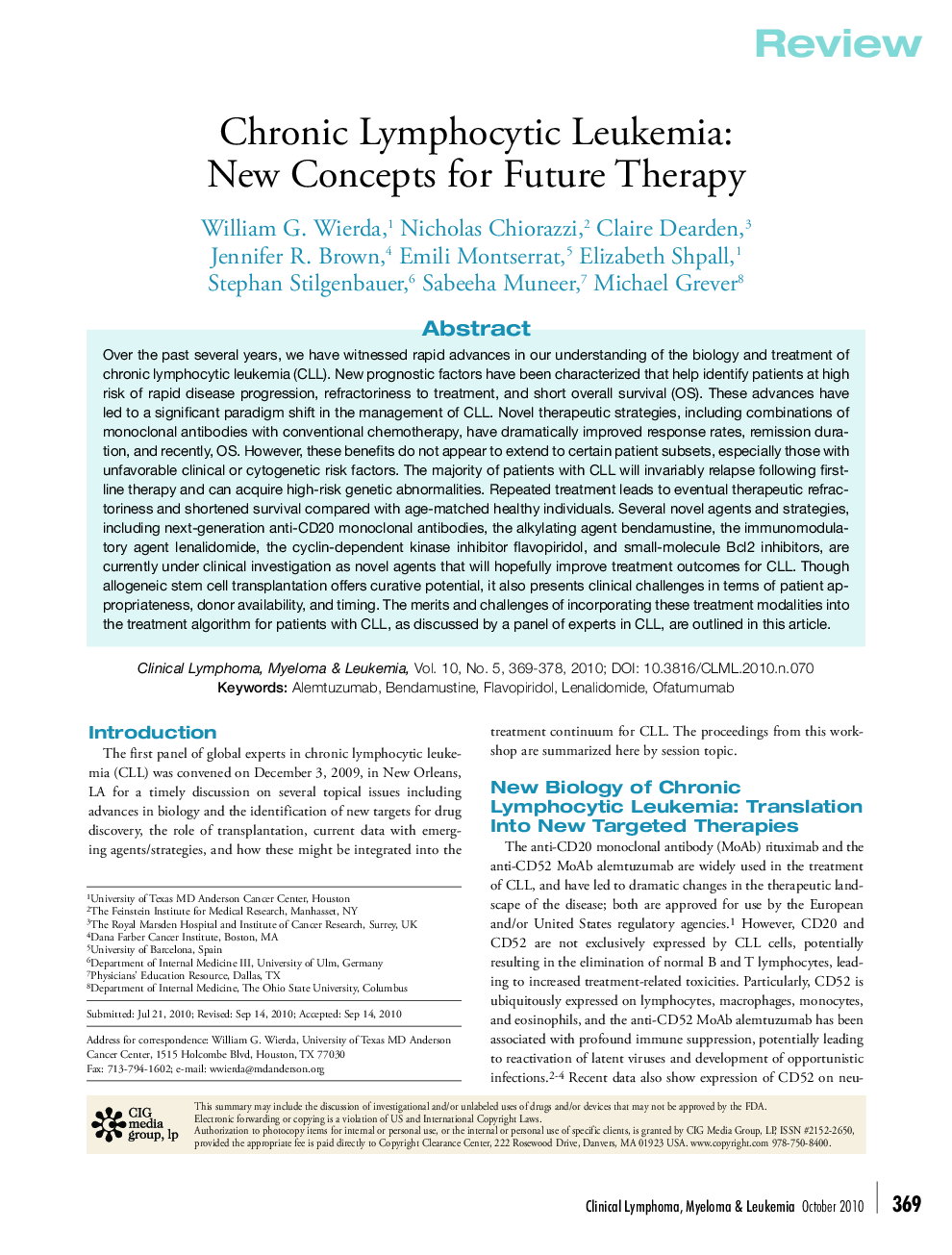| Article ID | Journal | Published Year | Pages | File Type |
|---|---|---|---|---|
| 2755486 | Clinical Lymphoma Myeloma and Leukemia | 2010 | 10 Pages |
Over the past several years, we have witnessed rapid advances in our understanding of the biology and treatment of chronic lymphocytic leukemia (CLL). New prognostic factors have been characterized that help identify patients at high risk of rapid disease progression, refractoriness to treatment, and short overall survival (OS). These advances have led to a significant paradigm shift in the management of CLL. Novel therapeutic strategies, including combinations of monoclonal antibodies with conventional chemotherapy, have dramatically improved response rates, remission duration, and recently, OS. However, these benefits do not appear to extend to certain patient subsets, especially those with unfavorable clinical or cytogenetic risk factors. The majority of patients with CLL will invariably relapse following first-line therapy and can acquire high-risk genetic abnormalities. Repeated treatment leads to eventual therapeutic refractoriness and shortened survival compared with age-matched healthy individuals. Several novel agents and strategies, including next-generation anti-CD20 monoclonal antibodies, the alkylating agent bendamustine, the immunomodulatory agent lenalidomide, the cyclin-dependent kinase inhibitor flavopiridol, and small-molecule Bcl2 inhibitors, are currently under clinical investigation as novel agents that will hopefully improve treatment outcomes for CLL. Though allogeneic stem cell transplantation offers curative potential, it also presents clinical challenges in terms of patient appropriateness, donor availability, and timing. The merits and challenges of incorporating these treatment modalities into the treatment algorithm for patients with CLL, as discussed by a panel of experts in CLL, are outlined in this article.
